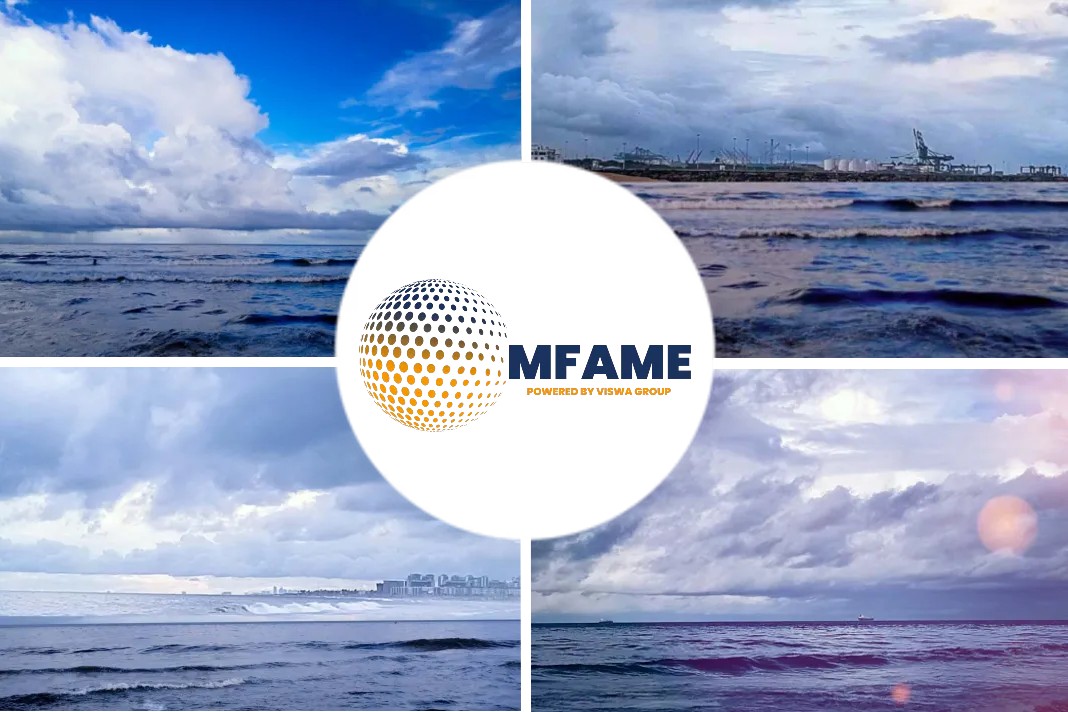Maersk is ramping up its anti-LNG message in a bid to get regulators and banks more onside to its own decarbonisation agenda, says an article published in Splash247.
A sizeable investment
Having announced plans to have the world’s first carbon neutral methanol-fuelled containership in operation by 2023, the world’s largest containerline followed this up with a sizeable investment into what will become Europe’s largest Power-to-X-facility to produce CO2-free green ammonia. Maersk officials are going on the attack as the future fuel debate stirs, taking aim at LNG, an alternate fuel promoted by many rivals, principally CMA CGM.
Fleet & Strategic brands CEO’s Concern
Speaking at a World Economic Forum event, Henriette Hallberg Thygesen, the CEO of fleet and strategic brands at A.P. Moller – Maersk, outlined why Maersk has thus far eschewed any orders for LNG-powered ships and expressed her company’s concerns that LNG and other so called transitional fuel proponents were getting too much favour from regulators and financiers.
“In our view LNG is indeed a fossil fuel emitting CO2 during combustion so it will not solve the problem,” she said, adding: “We are currently concerned around LNG about the levels of upstream methane emissions in the production cycle and methane slip from the engines during combustion.”
Maersk technology growth
Maersk has a long history of trying to steer and shape shipping’s regulatory debate with mixed results. For instance, while it advocated strongly against scrubbers, it eventually caved in, spending many millions of dollars on exhaust gas cleaning systems in the run up to last year’s global sulphur cap.
Thygese went on say that Maersk sees LNG technology presenting a risk in tying in investments to a technology that could be “outcompeted” by real net zero solutions.
Regulatory agenda
“It also highlights that we could be concerned about whether the transitional fuels are capturing the regulatory agenda and the incentives and the investment so we are creating a risk of stranded assets,” she said, adding: “We think we really need to focus on the long term solutions rather than the transitional actions.”
The Maersk executive told the World Economic Forum audience that shipping needed the proper regulatory framework and the support to drive through its decarbonisation agenda.
LNG Power
Most of the world’s largest liners have made some LNG-powered investments over the last couple of years with the notable exception of Maersk. CMA CGM is the biggest adherent of the gas, with 32 of its ships set to be powered by LNG by the end of next year.
Rodolphe Saadé, chairman and CEO of CMA CGM, speaking at the opening session of the virtual TPM container conference, commented: “Maybe LNG is not the technology of the future.” He went on to add that he felt that it was important not to criticise LNG, it was more important, he said, to be taking action now.
LinkedIn Comments
Commenting via LinkedIn on Maersk and CMA CGM’s divergent decarbonisation paths, Lars Jensen, a well known container shipping expert from SeaIntelligence Consulting, wrote: “As I see it, the most important take-away from this is that we have entered a stage, at least in container shipping, where the discussion is no longer about whether to decarbonise. And it is no longer hypothetical. The discussion is purely centered on how to decarbonise – and companies are putting real investment capital behind their plans.”
LNG-powered tankers and dry bulk carriers are also under construction these days with the 2020s shaping up to be a decade of dual fuel propulsion. Latest data from Clarkson Research Services shows that 27% of all ships on order are LNG fuel capable in GT terms.
Did you subscribe to our daily newsletter?
It’s Free! Click here to Subscribe!
Source : Splash247

















